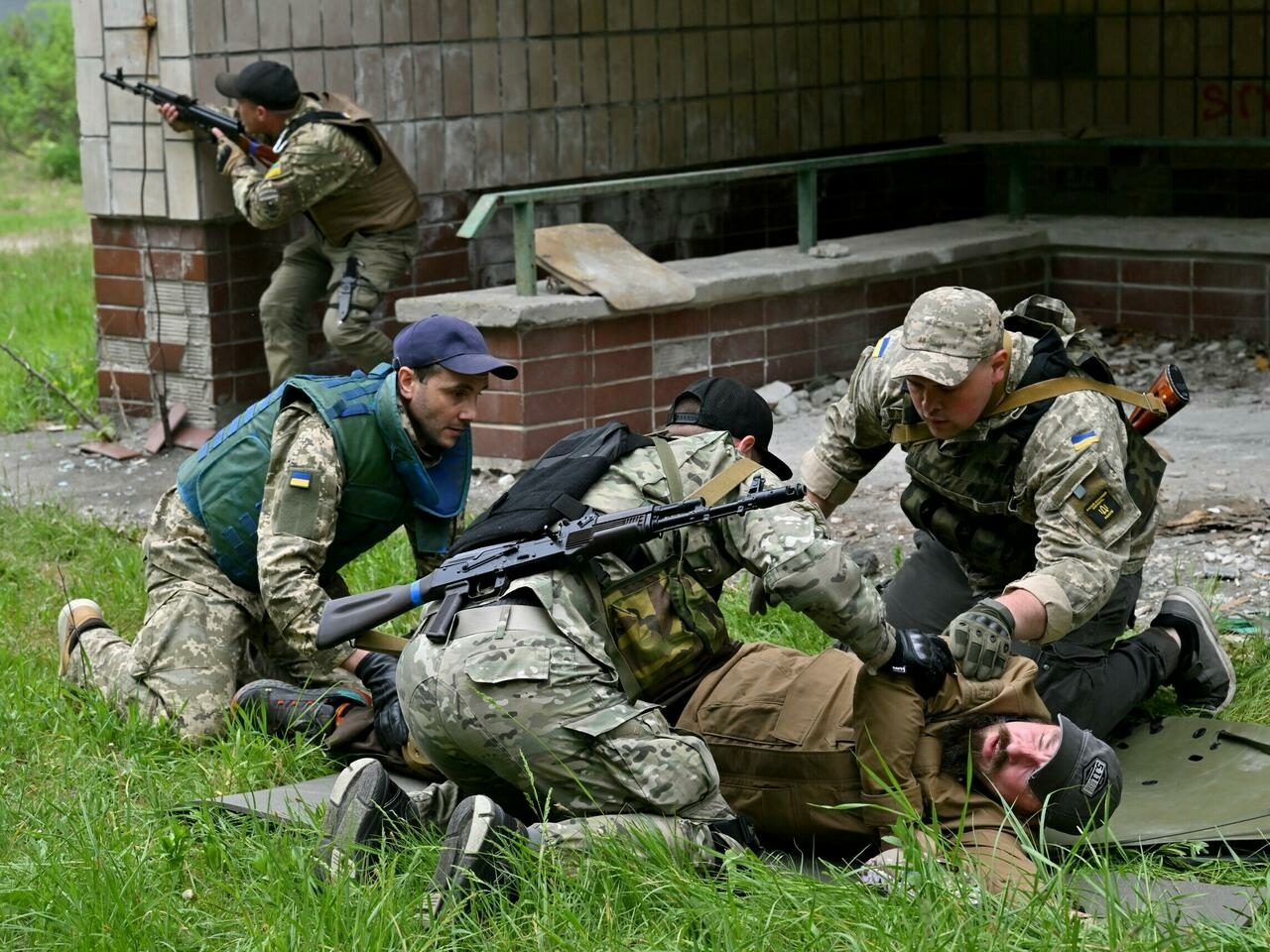
KYIV, Ukraine, May 21, 2022 (BSS/AFP) - "Hold on to the rope, look at me,"
the instructor says, coaxing 28-year-old lawyer Iryna Gorobiyovska who is
nervously about to abseil down a building.
Brimming with motivation but lacking experience, the Ukrainian, whose nom
de guerre is Bunny, ends up sliding, somewhat awkwardly, to the ground.
Like thousands of others, she signed up to the territorial defence unit, a
support force to the regular Ukrainian army, immediately after Russia invaded.
Open to all nationals, the only requirement is being aged between 18 and 60.
Some members already have military experience acquired after Moscow's
annexation of Crimea in 2014 and in the conflict with pro-Russian separatists
in eastern Ukraine that began the same year.
They immediately deployed to the war effort, but many others, like
Gorobiyovska, did not know how to handle a weapon or apply a tourniquet.
While the capital Kyiv was under siege by Russian forces earlier in the
war, they mostly helped build barricades or hand out humanitarian aid.
Russian soldiers are now focused on the south and eastern regions of
Ukraine, but -- anticipating a drawn-out conflict -- Kyiv has stepped up the
training of its new recruits so they are ready to face the enemy if and when
needed.
- Taught 'how to attack' -
Training sessions have been held every week since March, says Mykhailo
Shcherbina, deputy director of defence affairs for the Department of Municipal
Security at Kyiv City State Administration.
He says that between 8,000 and 10,000 people have been trained since March.
"It's a crime to send people who aren't prepared to a frontline. Everyone
has to be trained even (to a) minimum," he tells AFP.
It's all the more crucial now, he adds, as after largely defensive
operations, Ukrainian forces have begun going more on the offensive, such as in
the area around the northern city of Kharkiv.
"And we have to teach people how to attack, how to liberate the cities," he
says.
- 'Defend my country' -
Deep in the forest, away from the capital, an old hut formerly used by the
Pioneers, the Soviet version of the Scouts, is now a training ground.
Over five days, mechanics, construction workers, hairdressers and the likes
are put through their paces, learning how to navigate a minefield, evacuate the
wounded under fire, shoot an automatic weapon -- or escape through the window
of a multi-storey building.
It's the latter that causes difficulty for Gorobiyovska.
"It was so scary because I didn't understand what should I do," says the
woman with khaki painted fingernails afterwards.
"I agree to defend my country. But I hope I won't have to climb down from a
high storey" to do it, she adds.
In another training exercise, the recruits must take back a site held by
the enemy.
Advancing in single file, their weapons trained as they pass open areas, a
small group enters an abandoned building.
"Contact", "contact," one of them shouts out amid the crackling of weapon
fire -- in this case, their amunition is small white plastic pellets.
"Our task is to teach them to do fighting correctly in buildings, to know
how to clear them and annihilate the enemy," an instructor, who declines to
give his name, says.
"And remain alive."
- 'A chance' -
Konstantin, a 27-year-old municipal employee, knows the stakes only too
well.
He joined the territorial defence unit after fighting got close to his home
in March, he says.
"I couldn't not do anything, so I joined the territorial defence to protect
my town, my country," he explains.
He acknowledges however: "If I'd gone straight to the frontline, I wouldn't
have survived."
Now, having undergone his training, he believes he "has a chance".
Nevertheless the baby-faced young man wonders how he'll react when on the
ground in a real-life situation.
"Training is training, but when you see real blood it's different. Is it
going to stop me in my tracks, or give me a rush of adrenaline?" he says.
Doctor Demian Popov, 53, tries to provide the recruits with methods of
overcoming battle stress and teaches them about post-traumatic stress disorder
and the role of intuition in battle.
He says that despite them being highly motivated "there is no methodology
to find out who will leave the battle and who will not".
"It will be known only when the person will get there if he/she can fight
or not," he adds.